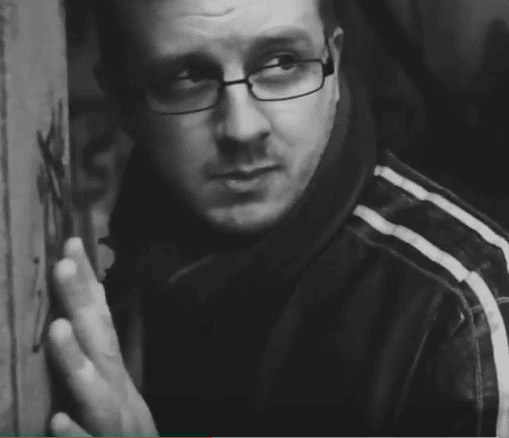VR Founder Aims To Reduce Racial Bias With Empathy Game (VIDEO)

Now and then a story glides through the feed about how VR is changing the way we approach problems and view the world. As the technology advances and becomes more accessible VR has become increasingly useful in classrooms, training facilities, laboratories, and medical research. It is no surprise then that someone might think to use VR as a tool to teach empathy and approach the issue of racial bias.
Racial bias is a difficult issue to approach. Companies like Starbucks have spent millions on diversity and racial sensitivity training and it is estimated that US companies have spent $8 million alone on these types of training. The difficulty lies in a lack of clarity in terms of the effectiveness of performance, however, these training exercises can often leave some feeling emotional, shamed, or guilty for how they relate to the presentations. These difficulties are further augmented when it is proposed that such bias doesn’t exist at all, effectively alienating co-workers and making the process uncertain and slow.
Clorama Dorvilias seeks to change this dynamic, making the experience more personal and private by applying VR to the process. With her gaming lab “Debias VR” she is aiming to tackle bias in educational and professional settings by fostering empathy instead of guilt. Currently the only black woman developing this unique VR tool, Dorvilias uses debiasing techniques to elicit genuine empathetic responses in users.
Companies can spend millions of dollars on extremely infective, and virtually useless trainings that can have an adverse effect which can hurt the company even more. Bias training shouldn’t be there to shame. People should feel good about making others feel accepted. Debias isn’t something that you can work out in a day. It’s a behavior that you have to work through. We want to give people the capacity to work in a safe and comfortable space.”
Dorvilas hadn’t always intended on running her own VR lab and got her first experience with development with VR in 2014 when she attended grad school at the University of the Arts in London. Working as an independent UX designer while achieving an Interaction Design Master’s degree, she became immersed in technology and motion sensors. Intent on expanding her front-end development experience she began to experience frustrating in her program as she experienced bias herself.
As it would turn out, a masters thesis project would keep her from quitting the program altogether. Tasked with using technology to solve a social problem, it immediately clicked that she could use the exercise to demonstrate how she felt in the course. The question, of course, was how could she demonstrate the experience first hand to someone who had no idea of their bias.
I stumbled upon empathy, which allows people to humanize each other. I knew the solution would have to be, how can I develop empathy for a professor like him for someone like me?”
Dorvilas would begin her journey exploring the language associated with implicit bias. Along the way, the term microaggression emerged, first coined in the 1970’s by Dr. Chester Pierce. The term gained momentum and evolved with Dr. Derald Wing Sue of Columbia Universty to be defined as follows:
(a microaggression is…)…everyday insults, indignities and demeaning messages sent to people of color by well-intentioned white people who are unaware of the hidden messages being sent to them.”
Continuing her research, Dorvilias found a TED talk by Chris Milk about how VR could be the “Ultimate Empathy Machine“. In the talk, he explained how footage used from 360 videos in the perspective of Syrian of refugees could create empathy in the viewers. With VR giving the viewer a first-person view of the world, something like walking in the shoes of a 12-year-old girl in a refugee camp would be life-changing.
Using the Oculus Rift, viewers were able to experience the trauma the girl, Sidra, endured first-hand. Milk would travel to the World Economic Forum, giving people who make decisions for third-world countries a chance to experience the world through their eyes. This would be the inspiration for Dorvilas project.
While she didn’t have the same resources as Milk, she knew she needed to get a similar response. Using a barely operation Oculus headset and video tutorials she set to building her own virtual environment. After 4 months she was able to “gamify a diversity trainer” using techniques for debiasing. She even recorded her progress, and it can be seen below:
Using minority avatars she put viewers in a tech environment where they had to reach their goal by relying on women and people of color. Backed by research from the University of Barcelona, Dorvilias enlisted 32 white women to demo the game. Half of the women were in white virtual bodies and the other half in black virtual bodies. Players found themselves unconsciously mimicking avatars who had the same color skin as their avatar, regardless of the user’s actual skin color. Dorvilas was able to conclude that the exercise created positive outcomes socially and that racial bias was usually lessened when the users were assigned a race different than their own in the VR environment.
When she achieved her degree in 2015 she didn’t think she would stay in VR because at that time the industry wasn’t booming in Europe. A year later the VR community was thriving and Dorvilias realized she already had a leg up over the competition. It wasn’t until she met Jessica Outlaw in 2017 that her vision would truly take shape.
Jessica Outlaw founded “The Extended Mind”, a company that trans VR and AR companies how to improve engagement with their users through insights in practical behavioral science. The two would meet at Oculus Launch Pad, held at Facebook HQ where they would wind up talking while waiting for Lyfts back to San Francisco.
The two hit it off after sharing a ride back, and the two found they had common interests with Outlaw having looked into anti-discrimination tools herself. That conversation would eventually lead to creating an app that addressed implicit racial bias with the use of VR. Classroom bias would be their focus, studies showing that educators are less likely to encourage females to take STEM courses and had lower expectations of students of color. Within six weeks the two had a solid concept and Dorvilias completed the app in another three weeks. The goal, according to Outlaw, was to change expectations:
Black and Latino students are disciplined at higher rates and tracked into AP courses at lower rates so it would be good if people would start making decisions based on data and examine some underlying structural issues. This is an evidence-based approach, if you can change teacher expectations you can change student’s performance.”
A 2017 Google commissioned report by Stanford and American University explored this very topic, looking at unconscious bias found in the classroom. The findings revealed that teachers regularly subjected students of a different race to treatment that was harsher and were less likely to offer support, creating a gap of achievement with students of color. Another study used in the development was by Robert Rosenthal and Lenore Jacobson, finding that students improved intellectually when held to a higher standard. According to Dorvilias, the correlation creates serious issues for societal and economic standards:
It affects society and our economy as a whole when you draw the line on what you think a person is capable of doing based on how they look. What limitations are we placing on society and our innovation when people in power put a cap on who gets to succeed and who doesn’t?”
The app, Teacher’s Lens, won an Oculus Launch Pad Scholarship near the end of 2017 and the two launched their app through their company Debias VR on May 25th, 2018. The app is primarily funded by the scholarship provided by Oculus, however, they are still seeking investors. While similar apps exist, Teacher’s Lens tracks progress over time and offers a sustainable outcome lacking suffering. Dorvilias believes VR is a powerful tool for change and intends to continue to develop empathy tools within the medium for schools and business.
How do you think this concept could be used to change the way we see the world? Join in on the conversation in the comment section below! Don’t forget to follow DFTG on Twitter for live gaming and entertainment news 24/7!

Charles Douglas734 Posts
Deep in the mountains of the south west lives a man who writes game editorials, makes YouTube Videos, and is an overall mega nerd. An avid believer in Unicorns, and your new all star line backer, Number 34, CHARLES DOUGLAAAAAAASSSS!!!!










